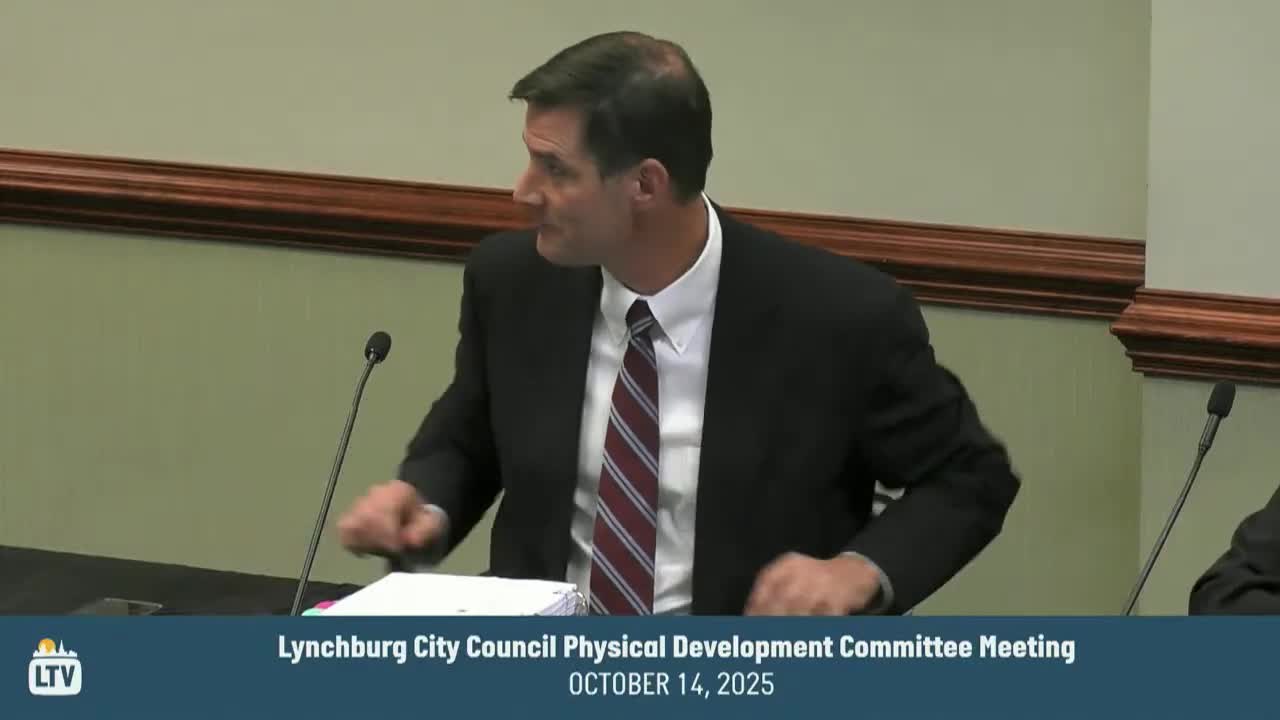Lynchburg pushes derelict-property program, new graffiti initiative and buildersincentives
Get AI-powered insights, summaries, and transcripts
Subscribe
Summary
City staff described an expanded derelict properties dashboard, added authority to include commercial properties, a new reimbursement grant for private graffiti removal and a proposedbuildersguild to speed housing reinvestment in older neighborhoods.
Lynchburg staff told the City Council on Oct. 14 that the city—s property toolkit and derelict-property program are producing renovations and demolitions, and described a new focus on graffiti removal and incentives to spur private investment.
The city reported it currently has 261 condemned properties and 94 properties enrolled in the derelict program, with 47 renovations recorded and 32 more in progress. Since 2022 the city said there have been 41 demolitions, 20 performed by the city and 21 done by private entities. City staff gave examples of properties that were demolished and replaced with higher-valued infill housing.
City planning staff described a recent change in state law that allowed the derelict program to include commercial properties. Staff showed one example, 709 Fifth Street, where a developer plans ground-floor commercial space with four residential units above; subsequent phases on the same block could add 24 to 35 units and additional commercial spaces.
Staff said the derelict program is coupled with a range of neighborhood strategies: targeted enforcement in older parts of the city, an effort to improve the city—s property-dashboard tracking, and potential longer-term tools including capital-improvement-program purchases or tax-delinquent sales to stabilize properties for rehabilitation rather than demolition.
On graffiti, staff outlined the city—s existing ordinance (defining graffiti as unauthorized markings and currently classified as a Class 1 misdemeanor) and said the problem has been under-acknowledged. Staff reported an inventory that grew from an initial 50 instances to 68 documented locations and said graffiti appears on private buildings, bridges, signs, fences and utility cabinets.
To address graffiti staff proposed a three-part approach: 1) use public-works crews to remove graffiti on public property; 2) cite private property owners under the nuisance ordinance and then offer a reimbursable grant so owners who remove graffiti can be reimbursed by the city; and 3) negotiate with utility providers about removing graffiti on poles and cabinets, a more complex issue because utility companies currently restrict outside contractors from working on certain equipment.
Council members asked how reimbursement would avoid damaging historic facades; staff answered the city would require the owner to remove graffiti with methods that do not harm a building and would reimburse the owner rather than sending city crews into private buildings. Council members also asked whether the downtown association and other nonprofits were engaged; staff said the Downtown Lynchburg Association and other local stakeholders have been consulted and are supportive.
Staff said it is seeking ways to encourage private rehabilitation, including a —builders— guild— proposal discussed with the local home builders association. Potential incentives under discussion include preapproved plan books to speed permitting, permit-fee offsets, utility service-line assistance and deed-research incentives to help clear title for rehabilitation.
The department said the housing trust fund remains a two-to-five-year objective under current planning, and staff committed to provide council members with ward-level addresses for derelict-program parcels when requested.
Ending: Staff requested council feedback about the graffiti reimbursement program and the builders-guild concept and said they will return with more detailed implementation steps and the dashboard when it is available.
